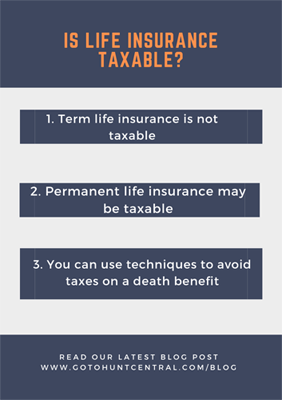Estimates from the Department of Health and Human Services show that 19 to 50 percent of non-elderly Americans have a preexisting health condition. If you are thinking about life insurance, you may wonder how your health will affect your ability to get it. Can you get life insurance regardless of your health? We will give you a straight answer. And we will explain what to expect as you search for a life insurance policy.
Can You Get Life Insurance Regardless of Your Health?

In most cases, you can get life insurance regardless of your health. But depending on your health condition, the death benefit—or the payout to your survivors—may be limited. And your monthly insurance premiums may be higher than average. Your insurance company may request that you complete an exam or additional health screenings for many health conditions. But other companies offer no-exam insurance, which may be an option for you.
Will Your Health Affect the Cost of Your Life Insurance Premiums?
Your health is one factor that will affect the cost of your health insurance premiums. But other factors can affect your rates, too. Consider seven:
- Age – As we age, the cost of life insurance premiums increases.
- Gender – Women live longer than men and generally pay less for life insurance.
- Health history – Your history of illnesses, diseases, surgeries, and prescription medications can affect the cost of life insurance.
- Family health history – A history of genetic diseases can affect your premiums.
- Lifestyle – If you smoke or participate in high-risk sports or hobbies, it will affect your life insurance premiums.
- Occupation – Some jobs are riskier than others. Loggers, pilots, roofers, garbage collectors, and others have an increased risk of accident, injury, and death. And their insurance premiums are higher.
- Policy and coverage amount – Generally, whole life insurance premiums are higher than term life insurance premiums. Also, insurance policies with a higher death benefit have higher premiums. For example, you will pay more for a policy with a $500,000 payout than one with a $50,000 payout.
Which Health Conditions Can Contribute to Higher Life Insurance Premiums?
Various health conditions can contribute to higher life insurance premiums. But having a preexisting condition does not automatically increase your premiums. The insurance company will consider several factors, including the history and severity of your illness, the diagnosis, and the treatment plan.
These conditions might contribute to higher life insurance premiums:
- Acquired immunodeficiency syndrome (AIDS)
- Alzheimer’s disease
- Anemia
- Anxiety
- Anorexia or bulimia
- Asthma
- Attention deficit disorder (ADD)
- Attention deficit hyperactivity disorder (ADHD)
- Autism
- Autoimmune diseases
- Blindness
- Cancer
- Cardiovascular or heart disease
- Dementia
- Depression
- Diabetes
- Digestive disorders
- Epilepsy
- Heart disease
- High cholesterol
- Human immunodeficiency virus (HIV)
- Lung disorders
- Mental health disorders
- Neurological disorders
- Obesity
- Osteoarthritis
- Osteoporosis
- Pancreatitis
- Psoriasis
- Pulmonary heart disease
- Renal failure
- Rheumatoid arthritis
- Sleep disorders
- Tuberculosis
What If You Have Cancer and Need Life Insurance?
If you have cancer and need life insurance, guidance is available. Please download the Consumer’s Guide to Cancer Insurance on the National Association of Insurance Commissioner’s website. The document gives you practical suggestions, offers caution, and lists several factors to consider before purchasing a life insurance policy.
What Type of Life Insurance Is Available If I Have Health Issues?
If you have health issues, several types of life insurance are available. Options include term insurance, no-exam insurance, and guaranteed acceptance life insurance. Consider the benefits and disadvantages of each type of insurance.
- Term life insurance – Although your health will impact your term life insurance premiums, you will have the flexibility to choose a higher death benefit.
- No-exam insurance – You can get term or permanent life insurance without an exam. But your coverage amount will be limited. Depending on the insurance company, certain medical conditions may disqualify you from purchasing the policy.
- Guaranteed acceptance life insurance – No medical exam or health questions are required. Most insurance companies offer guaranteed acceptance insurance as a whole life policy with a maximum death benefit—often around $25,000. Guaranteed acceptance life insurance policies usually have terms that limit your beneficiary’s payout when your policy is new. For example, If you decease within one or two years after purchasing the insurance, your beneficiary will receive little or no death benefit.
For information on how term and whole life insurance compare, read our post Term Life vs. Whole Life Insurance – How to Decide.
Conclusion
In most cases, you can get life insurance regardless of your health. Below are four key takeaways:
- You can find term and whole life policies—some that do not require an exam.
- Although a preexisting medical condition does not automatically mean higher life insurance premiums, sometimes premiums are higher than average.
- Insurance companies may limit the amount of life insurance coverage you can purchase.
- Request prices from different insurance companies to compare your options.
Want to Know the Cost of Life Insurance Premiums?
If you have a preexisting medical condition and want to know how much life insurance will cost, contact Hunt Insurance of Raleigh. We offer personalized, hassle-free service. John Hunt will be upfront in explaining your options and the cost.

